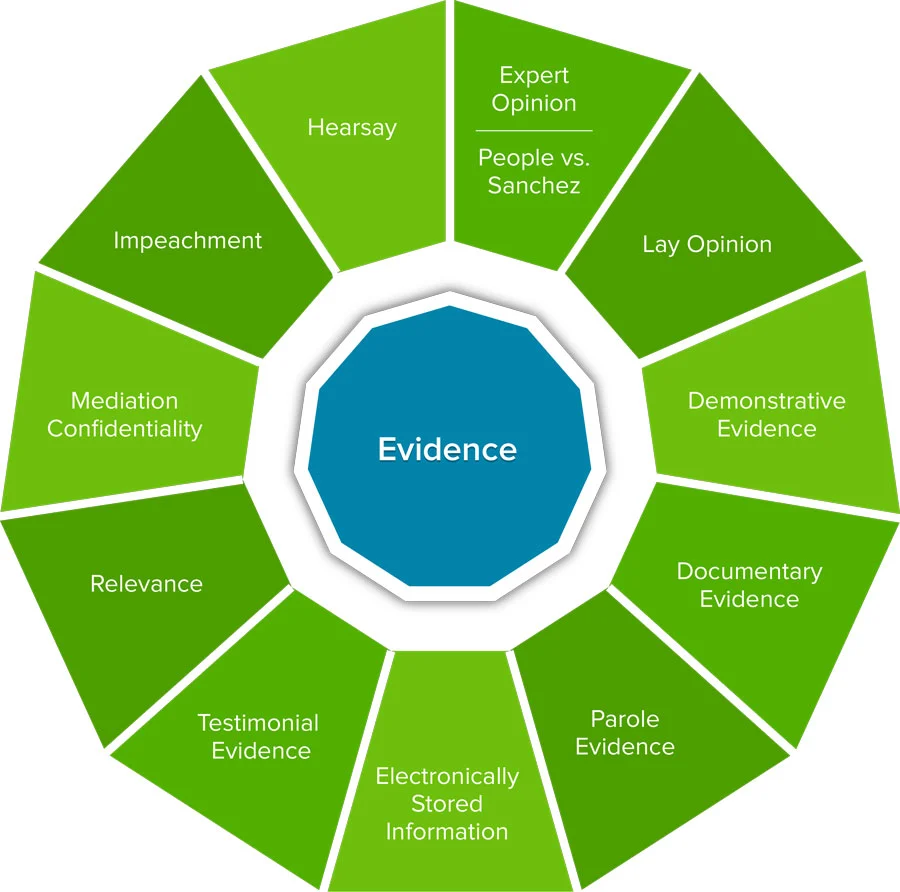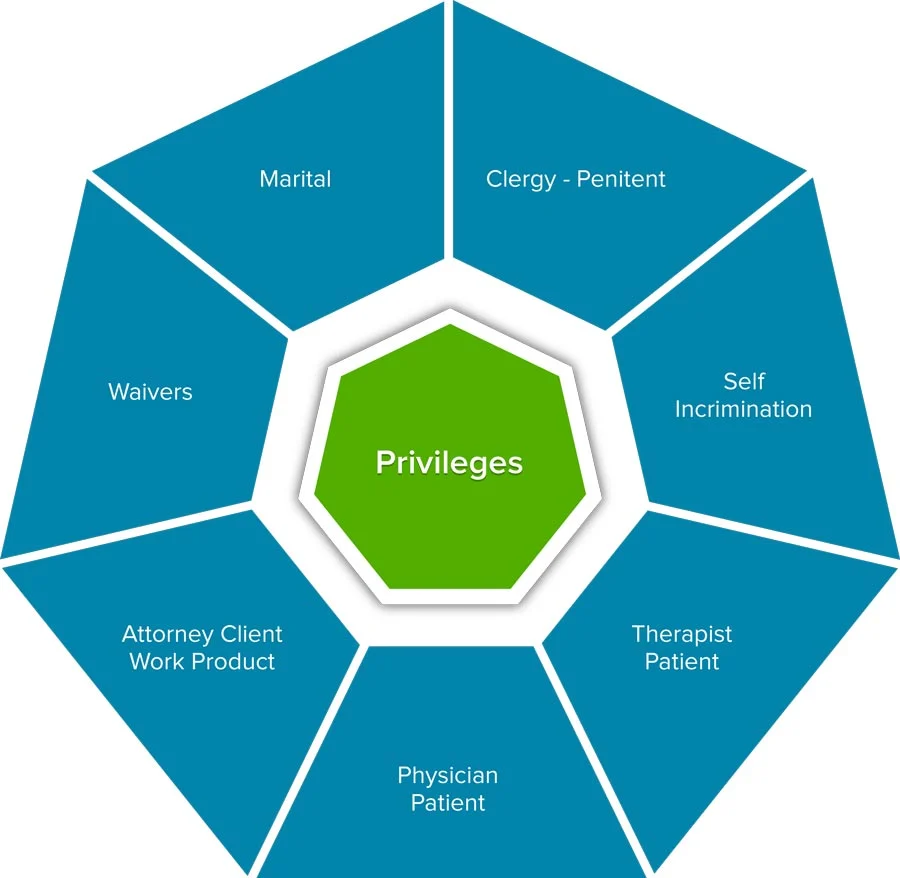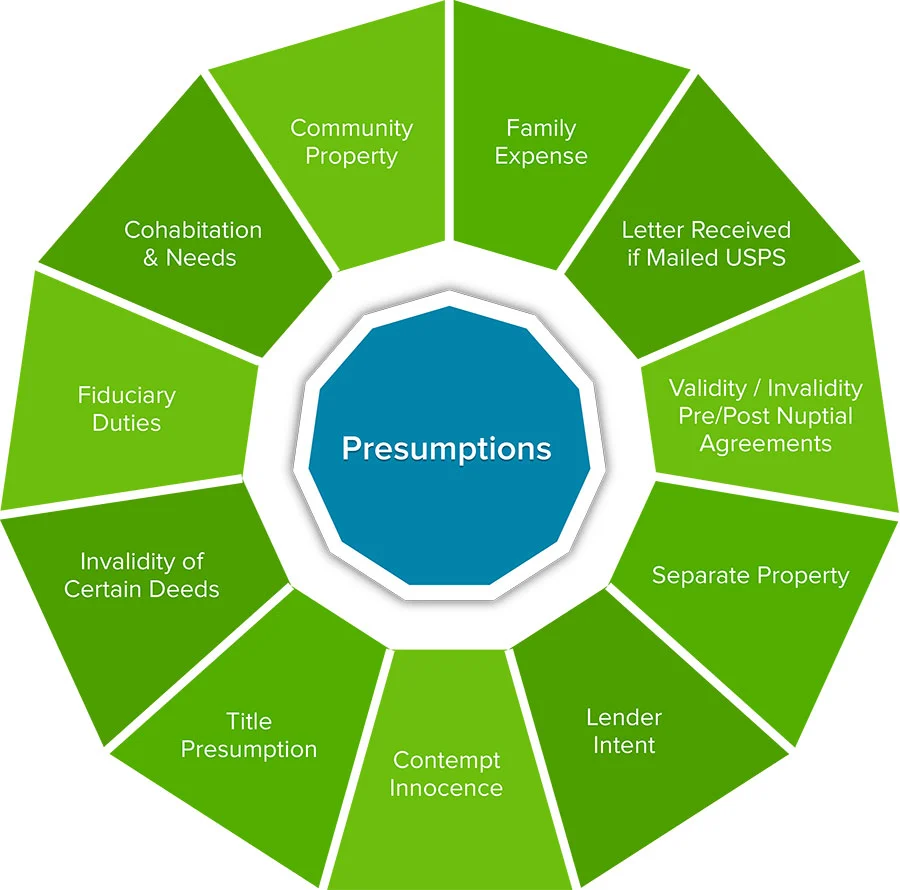Evidence, Presumptions And Privileges
Are Evidentiary Objections And Privileges Relevant In A Divorce Trial?
Family law trials, like civil litigation and business litigation, are controlled by the Code of Civil Procedure and the Evidence Code. The parties, witnesses and frequently expert witnesses are called to testify.
Like in all types of litigation, lawyers must have a strong command of the rules of evidence, presumptions, and privileges in order to present their case to the court.
Evidence, Presumptions And Privileges
The property portion of a divorce is essentially the division of a partnership – a business transaction. There are very specific and detailed procedures that must be followed in a divorce trial, like in any trial. The resolution of a divorce may take the form of a settlement or a trial. It is a significant error to believe that dividing community property 50/50 means that the division will necessarily be simple. Parties may disagree on the value of assets, who is to be awarded the assets, and whether the assets are community property or separate property. If the parties do not agree on the terms of a settlement, the conflicts will be resolved by a judge.
Courts may not allow experts to rely on case-specific hearsay in forming their opinions or testifying in family law matters per the California Supreme Court case of People vs. Sanchez. This can severely limit the areas and issues on which experts may testify.



A trial is not an opportunity to informally tell a story to the judge. Very often the rules of evidence prevent significant facts, evidence, and testimony from being presented. If this occurs, the facts can not be considered by the court in its rulings.
There are many presumptions that may actually control the outcome of a case. Some presumptions are rebuttable and others are conclusive. Some presumptions take priority over others. There are presumptions that affect the burden of proof and presumptions that affect the burden of producing evidence. Presumptions and burdens of proof are very significant to discovery, trial preparation and strategy. If an individual is not familiar with these issues, they will be at a significant disadvantage in a trial.



